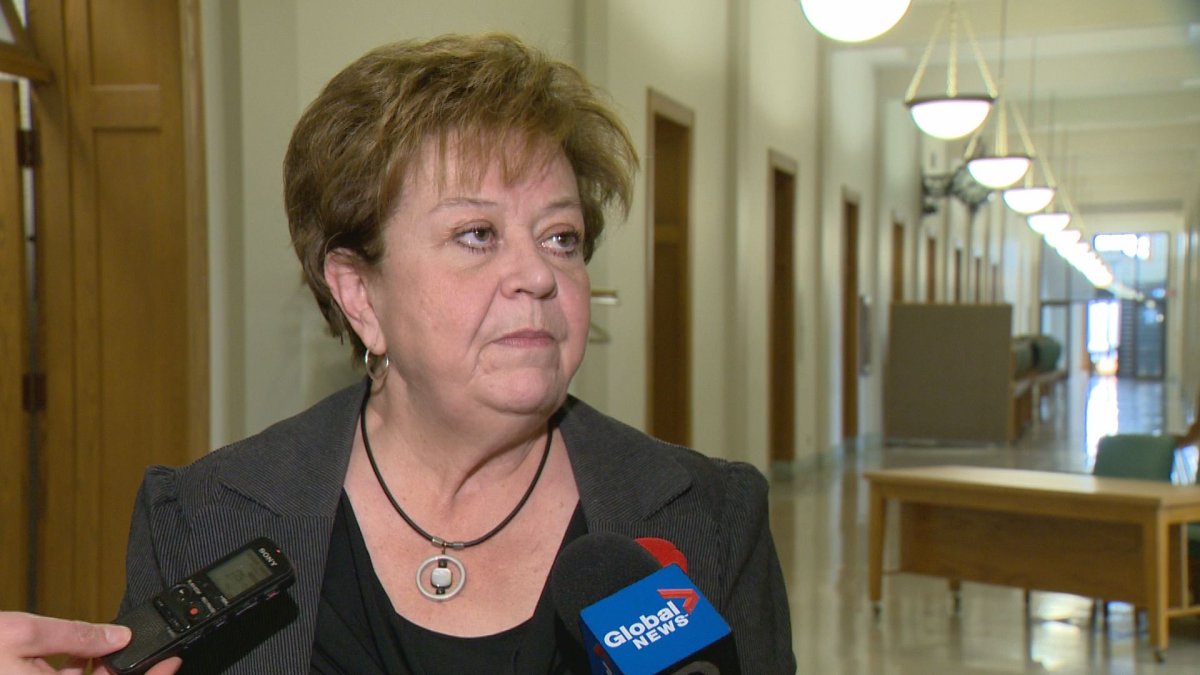Saskatchewan may have acquired a new premier and finance minister since the 2017-18 budget was delivered, but the pre-budget message remains the same.

“This will be a challenging budget coming forward,” Premier Scott Moe said March 28.
In one week, the people of Saskatchewan will know the details of the second phase of the Saskatchewan Party government’s three-year plan to get back to balance.
As for the province’s third quarter update, Saskatchewan’s projected deficit is $595 million. That’s down $100 million from last year’s budget, assisted by pension adjustments and stronger-than-forecast resource prices.
READ MORE: Saskatchewan’s deficit projection up $13.6 million: report
The goal in the upcoming budget will be to reduce the deficit by up to $300 million.
“We’re quite committed to get back to balance in those three years, so in order to do so we’re going to have to hit between $300 and $400 million,” Harpauer said when asked about deficit goals.
When asked about the prospect of another PST increase last week, Harpauer replied that everything is always on the table.
The finance minister also said that the province will be moving forward in trying to save $250 million through a 3.5 per cent public service compensation reduction. So far, the province has not been able to achieve this goal. In the mid-year fiscal update, Harpauer said much of the province’s $300 million contingency fund would be used to cover this shortfall.
- Some 2019 candidates ‘appeared willing’ to engage with foreign interference: Hogue inquiry
- Princess Anne to help commission new navy vessel in B.C. ceremony
- Foreign interference ‘undermined’ public confidence in elections: inquiry
- Canada, Manitoba to develop Red Dress Alert for missing Indigenous women and girls
“Collective bargaining continues, and each table is unique in its own, so we’ll see where that goes,” Harpuaer said.
This is on top of a planned five per cent staff reduction to executive government and Crown corporations. The province has said they want to achieve this reduction through attrition and retirement, not layoffs
READ MORE: Sask. PST exemption reinstated on agriculture, life and health insurance premiums
Moe promised this in his leadership campaign as a means to cover the elimination of PST on certain types of insurance. In the 2018-19 fiscal year, this
PST exemption is expected to cost the province $120 million in revenue.
Both Moe and Harpauer have spoken about making sure public dollars are invested in what people see as core services of government.
“What people are concerned with is the investment in education, both K-12 as well as post-secondary. They’re concerned with health care. They’re concerned with ensuring we’re taking care of our communities’ most vulnerable,” Moe said.
“But they’re also concerned that is going to be sustainable up into the future through responsible investment on behalf of people across the province”
We know some of the spending in the human services ministries will be doled out. Shortly after becoming premier, Moe and Education Minister Gord Wyant announced an annualized $30 million increase for school division funding. This follows last year’s $54 million cut.
The Ministry of Education will also be spending roughly $75,000 to develop financial literacy curriculum for Grade 11 and 12 students, plus coding and robotics curriculum for Grades 10-12 students.
Health Minister Jim Reiter has also confirmed that the long-promised individualized support funding for children under the age of six with autism will begin this year. Families will receive $4,000 for each child, and Reiter anticipates this will cost $2.8 million.
Last year’s budget, delivered by then Finance Minister Kevin Doherty, was poorly received for its cuts. Several of those cuts, such as library funding, were reversed. A major criticism was the lack of prior consultation prior to the budget. Harpauer said that criticism became a valuable lesson.
“I think those consultation meetings are critical so there’s a better understanding of what the impact is for us as government, but also there are a lot of stakeholders that want to help the situation as well,” she said.
Groups that had consultation sessions include both the Saskatchewan Association of Rural Municipalities (SARM) and Saskatchewan Urban Municipalities Association (SUMA). Harpauer said some social service providers also received consultations. She declined to name specifics as it could reveal aspects of the budget.
READ MORE: Sask. government makes good on revenue sharing consultation promise ahead of budget
In an interview with Global News, SARM president Ray Orb said he was told that revenue sharing dollars would be lower this year, but appreciated the conversation prior to the April 10 budget.





Comments